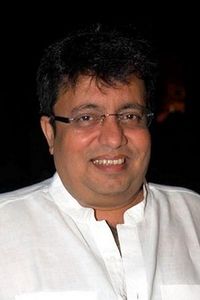Neeraj Vohra was born on January 22, 1963, in Bhuj, Gujarat, but he spent his childhood in Santacruz, a suburb of Mumbai. His father, Pandit Vinayak Rai Nanalal Vohra, was a renowned classical musician and proponent of Tar-Shehnai, who popularized it as a solo instrument for classical music.
As a child, Vora had limited exposure to Bollywood movies, as his family, rooted in classical music, discouraged listening to film music and watching films. However, his mother, Premila Ben, had a deep fascination for films and would secretly take her son to watch movies.
Vora attended the prestigious Pupils' Own School in Khar, Mumbai, where he was classmates with several famous celebrities, including Falguni Pathak, Kinjal Bakshi, and Tina Munim. Many students from his school received music coaching from his father, who insisted on teaching classical Indian music, while Vora would sneakily teach them how to play Bollywood songs on the harmonium, earning him immense popularity at school.
Vohra's interest in Gujarati theatre began at the age of 6, and when his father discovered this at 13, he supported his son's passion. Vohra went on to work in numerous successful Bollywood films, including Khiladi 420, Hera Pheri, Phir Hera Pheri, Hello Brother, Khatta Meetha, Familywala, Shortkut: The Con Is On, Hungama, and Garam Masala, among others.
Tragically, Vohra suffered from an illness for an extended period and died at the age of 54 on December 14, 2017. He had been in a coma for 13 months after suffering a massive heart-attack and brain stroke. Vohra passed away at 4 am at Criti Care hospital in Andheri, Mumbai, where he had been staying since October 2016 after being brought there by film producer Firoz Nadiadwala, who had converted a room into a make-shift Intensive Care Unit (ICU).
















































